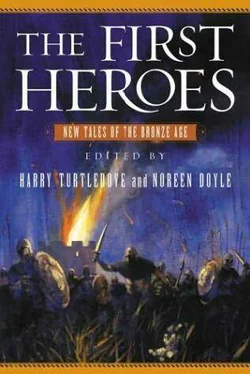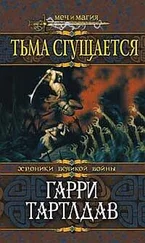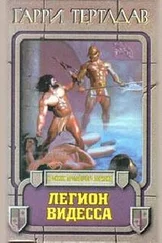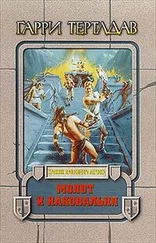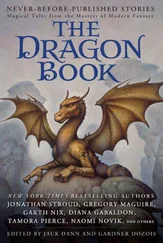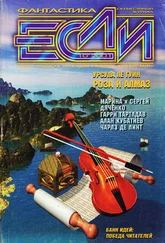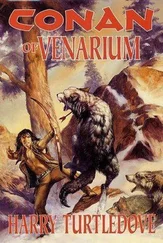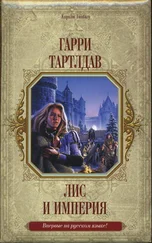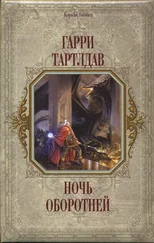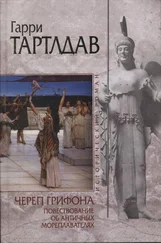Гарри Тертлдав - The First Heroes
Здесь есть возможность читать онлайн «Гарри Тертлдав - The First Heroes» весь текст электронной книги совершенно бесплатно (целиком полную версию без сокращений). В некоторых случаях можно слушать аудио, скачать через торрент в формате fb2 и присутствует краткое содержание. Жанр: Фантастика и фэнтези, на английском языке. Описание произведения, (предисловие) а так же отзывы посетителей доступны на портале библиотеки ЛибКат.
- Название:The First Heroes
- Автор:
- Жанр:
- Год:неизвестен
- ISBN:нет данных
- Рейтинг книги:3 / 5. Голосов: 1
-
Избранное:Добавить в избранное
- Отзывы:
-
Ваша оценка:
- 60
- 1
- 2
- 3
- 4
- 5
The First Heroes: краткое содержание, описание и аннотация
Предлагаем к чтению аннотацию, описание, краткое содержание или предисловие (зависит от того, что написал сам автор книги «The First Heroes»). Если вы не нашли необходимую информацию о книге — напишите в комментариях, мы постараемся отыскать её.
The First Heroes — читать онлайн бесплатно полную книгу (весь текст) целиком
Ниже представлен текст книги, разбитый по страницам. Система сохранения места последней прочитанной страницы, позволяет с удобством читать онлайн бесплатно книгу «The First Heroes», без необходимости каждый раз заново искать на чём Вы остановились. Поставьте закладку, и сможете в любой момент перейти на страницу, на которой закончили чтение.
Интервал:
Закладка:
Eeasawn won the chariot race. (Pukz 111-114) I reached the semifinals in spear-dueling, fighting with the sword I picked up during the battle in my left hand. (Pukz 115-118)
Twice I severed a spear shaft, as Kastawr taught me. (Pukz 119 and 120) I was as surprised as my opponents. One must fight without effort, Kaeneus said, and Kaeneus was right. Forget the fear of death and the love of life. (I wish I could now.) Forget the desire to win and any hatred of the enemy. His eyes will tell you nothing if he has any skill at all. Watch his point, and not your own.
I was one of the final four contestants. (Pukz 121) Atalantah and I could not have been happier if I had won. (Pukz 122 and 123)
I have waited. I cannot say how long. Atalantah will surely come, I thought. Hahraklahs will surely come. I have eaten some of the funeral meats, and drunk some of the wine that was to cheer the king in Perse-fonay's shadowy realm. I hope he will forgive me.
We drew pebbles from a helmet. (Pukz 124 and 125) Mine was the black pebble (Pukz 126), the only one. No one would look at me after that.
The others (Pukz 127 and 128) were chosen by lot, too, I believe. From the king's family. From the queen's. From the city. From the palace servants. That was Kleon. He had been wine steward. Thank you, Kleon, for your good wine. They walled us in, alive.
"Hahraklahs will come for me," I told them. "Atalantah will come for me. If the tomb is guarded—"
They said it would be.
"It will not matter. They will come. Wait. You will see that I am right."
They would not wait. I had hidden the dagger I won and had brought it into the tomb with me. I showed it to them, and they asked me to kill them. Which I did, in the end. I argued. I pleaded. But soon I consented, because they were going to take it from me. I cut their throats for them, one by one.
And now I have waited for Atalantah.
Now I have waited for Hahraklahs.
Neither has come. I slept, and sat brooding in the dark, slept, and sat brooding. And slept again, and sat brooding again. I have reread my diary, and reviewed my Pukz, seeing in some things that I had missed before. They have not come. I wonder if they tried?
How long? Is it possible to overshoot my own period? Surely not, since I could not go back to it. But I will be careful just the same. A hundred years—a mere century. Here I go!
Nothing. I have felt about for the bodies in the dark. They are bones and nothing more. The tomb remains sealed, so Atalantah never came. Nobody did. Five hundred years this time. Is that too daring? I am determined to try it.
Greece. Not that this place is called Greece, I do not think it is, but Eeasawn and the rest came from Greece. I know that. Even now the Greeks have laid siege to Ilion, the city we feared so much. Agamem-nawn and Akkilleus are their leaders.
Rome rules the world, a rule of iron backed by weapons of iron. I wish I had some of their iron tools right now. The beehive of masonry that imprisons me must surely have decayed somewhat by this time, and I still have my emergency rations. I am going to try to pry loose some stones and dig my way out.
The Mayflower has set sail, but I am not aboard her. I was to make peace. I can remember it now—can remember it again. We imagined a cooperative society in which Englishmen and Indians might meet as friends, sharing knowledge and food. It will never happen now, unless they have sent someone else.
The tomb remains sealed. That is the chief thing and the terrible thing, for me. No antiquarian has unearthed it. King Kuzikos sleeps undisturbed. So does Kleon. Again . . .
This is the end. The Chronomiser has no more time to spend. This is my own period, and the tomb remains sealed; no archeologist has found it, no tomb robber. I cannot get out, and so must die. Someday someone will discover this. I hope they will be able to read it.
Good-bye. I wish that I had sailed with the Pilgrims and spoken with the Native Americans—the mission we planned for more than a year. Yet the end might have been much the same. Time is my enemy. Cronus. He would slay the gods if he could, they said, and in time he did.
Revere my bones. This hand clasped the hand of Hercules.
These bony lips kissed the daughter of a god. Do not pity me.
The bronze blade is still sharp. Still keen, after four thousand years. If I act quickly I can cut both my right wrist and my left. (Pukz 129 and 130, infrared)
The Zhou Dynasty of China came to an end during the Warring States Period (475—221 B.C.), when a number of vassals broke away from Zhou rule and fought vigorously among themselves. Amid this turmoil the arts thrived and the period came to be called "One Hundred Flowers Blooming." Brenda Clough, who has already brought elements of the Near Eastern Bronze Age into modern times in two recent novels, illuminates this contradiction, that art may indeed be born out of war, and serve it.
How the Bells Came from Yang to Hubei
Brenda Clough
Ihad never beheld such a miserable wretch. My master Chu gulped. The prisoner was bone-thin, the weeping sores easily visible through his rags. His dirty bare feet left red smears on the tile floor. "The carpet," old Lord Yang murmured, and servants carried the priceless textile aside. We ourselves had not dared to walk on it and had stepped around.
The soldier in charge jerked the rope attached to the unfortunate's leg shackle, and the prisoner fell flat on his face with no attempt to break the fall. I saw that his hands had been chopped off, the wrists ending in black cauterized stumps. How could one come to such a horrendous pass, the ultimate catastrophe for a handiworker? My own fingers twitched in sympathy. From my place just behind and to his left I saw Master Chu's cheek blanch. He is oversensitive, a true artist. Luckily he has me, young Li, for First Assistant. Discreetly I gripped him by the elbow to keep him upright. Lord Yang would not think a faint amusing.
"Tell your tale, worm," the soldier barked.
The prisoner's Chinese was accented but understandable: "The battle in Guangdong—we should have won. We were winning. Our arrows darkened the sky. We had a third again as many spears."
"And?" Lord Yang flicked a glance at my master. I squeezed his arm to make sure he was listening.
"The bells. They had sorcerers with bronze bells. Racks and racks of them, dangling like green skulls, carried into the field on wagons. And the sound . . ."
"Ah, the sound!" My master straightened. "Was the note high-pitched, or low?"
"Both. Neither. I cannot say. They beat the bells with mallets, and we fell down. Blood poured from our noses and assholes. Our guts twisted in our bellies . . ." The prisoner began to sob, muffling the noise in the crook of his elbow.
Lord Yang sighed. "This one's usefulness is at an end." The soldier hauled the prisoner roughly up, and the servants ushered them out. More servants crawled in their wake, silently mopping up the red stains with cloths. I tried not to look. "Now, Master Chu. You know of these bells that Lord Tso used to defeat Guangdong?"
"I can guess, my lord." My master would have scratched his head in his usual thoughtful gesture, but I twitched his arm down—you can't scratch in front of a warlord. "When I was First Assistant in his foundries, the Lord Tso was their most munificent patron."
"As I shall be yours." Lord Yang flicked a wrinkled finger. A servant came forward with two bulging leather bags. "Make me bells, Master Chu. Bells of war."
"My lord, the Lord Tso ordered a set of sixty bells."
"You shall make me eighty."
"Eighty!" My master drew in a deep joyful breath. "Such a commission—the foundry's resources will be yours alone, lord. And a huge ensemble like this—they must be zhong bells, of course, mounted upon racks for easy transport . . ."
Читать дальшеИнтервал:
Закладка:
Похожие книги на «The First Heroes»
Представляем Вашему вниманию похожие книги на «The First Heroes» списком для выбора. Мы отобрали схожую по названию и смыслу литературу в надежде предоставить читателям больше вариантов отыскать новые, интересные, ещё непрочитанные произведения.
Обсуждение, отзывы о книге «The First Heroes» и просто собственные мнения читателей. Оставьте ваши комментарии, напишите, что Вы думаете о произведении, его смысле или главных героях. Укажите что конкретно понравилось, а что нет, и почему Вы так считаете.
